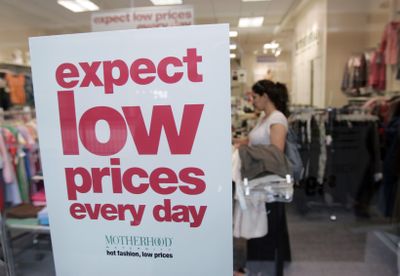Economic news unsettling
With inflation at 17-year high, foreclosures mounting and wages stagnant, consumers are being squeezed

WASHINGTON – Inflation is running at the fastest pace in 17 years, the job market is under further strain and foreclosure filings are surging.
A raft of gloomy economic data on Thursday represented a setback for those hoping to see signs of better times ahead and it may keep the Federal Reserve jammed between rising inflation and slowing growth.
The Labor Department reported that consumer prices shot up by 0.8 percent in July, double the increase that economists had expected. The rise was only slightly lower than the 1.1 percent surge in June that had been the second-highest monthly increase in the last 26 years.
The big gains left inflation increasing by 5.6 percent over the past year, the largest 12-month jump since the period ending in January 1991.
Core inflation, which excludes volatile food and energy costs, rose 0.3 percent in July, slightly higher than the 0.2 percent increase that economists had expected. For the past 12 months, core inflation has risen by 2.5 percent, the highest 12-month change since February.
The biggest price pressures came in the energy and food sectors, just as they have all year. But the price gains spread to other areas, too – clothing costs jumped by the largest amount in a decade, airline fares rose sharply and the cost of hotel rooms and tobacco products also climbed.
“For the average American, these inflation numbers are very bad news. It means that their purchasing power has been cut and their wages aren’t going very far,” said Mark Zandi, chief economist at Moody’s Economy.com.
Indeed, the Labor Department said in a separate report that average weekly wages, after adjusting for inflation, fell by 3.1 percent in July compared to a year ago, the biggest year-over-year decline since November 1990.
Some economists said they believed this could be the last truly terrible inflation report. Energy prices have been falling since hitting a peak last month and food prices are expected to stabilize given reports of likely bumper harvests for corn and soybeans.
But other analysts worried the July price report could be a signal that inflation is not going to moderate quickly because the long surge in energy prices is now starting to spread to other sectors of the economy.